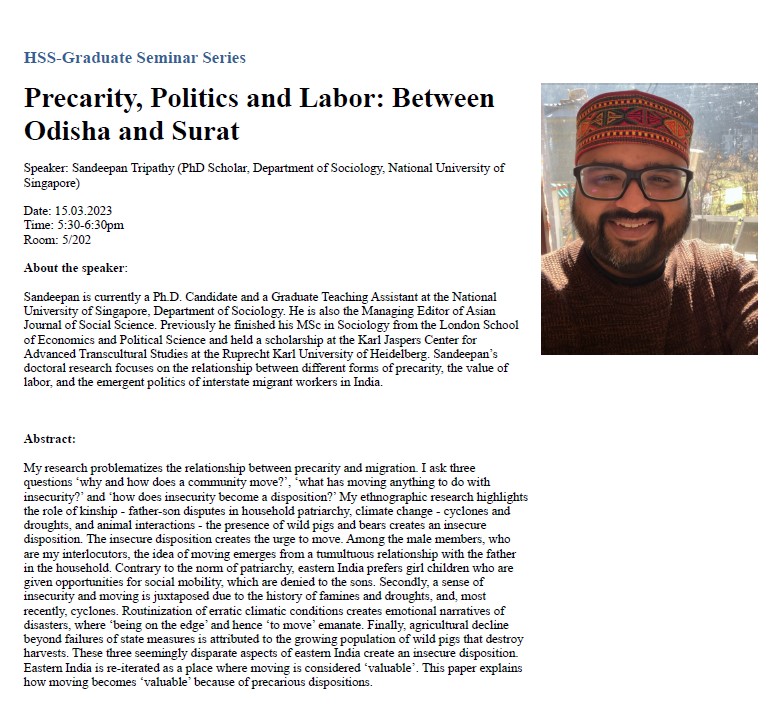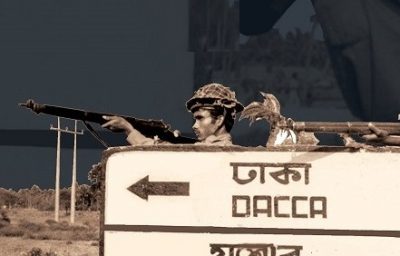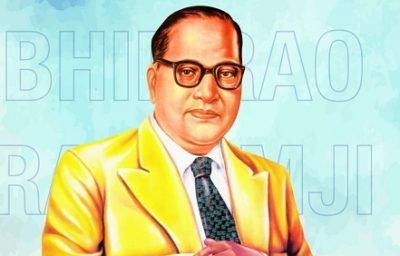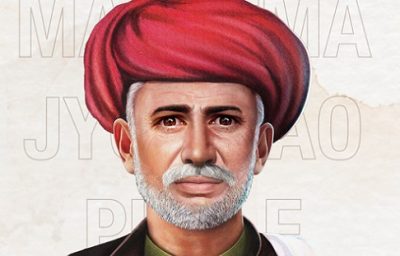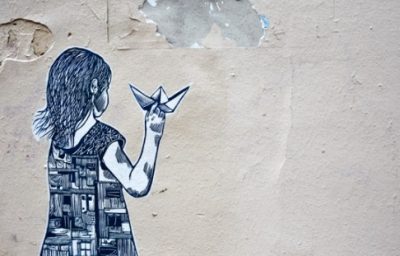“Precarity, Politics and Labor: Between Odisha and Surat” by Sandeepan Tripathy
Date: 15th March 2023
Time: 5:30PM-6:30PM
Room: AB 5/202
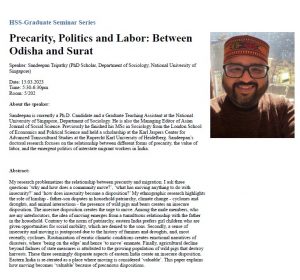
About the speaker
Sandeepan is currently a Ph.D. Candidate and a Graduate Teaching Assistant at the National University of Singapore, Department of Sociology. He is also the Managing Editor of Asian Journal of Social Science. Previously he finished his MSc in Sociology from the London School of Economics and Political Science and held a scholarship at the Karl Jaspers Center for Advanced Transcultural Studies at the Ruprecht Karl University of Heidelberg. Sandeepan’s doctoral research focuses on the relationship between different forms of precarity, the value of labor, and the emergent politics of interstate migrant workers in India.
Abstract
My research problematizes the relationship between precarity and migration. I ask three questions ‘why and how does a community move?’, ‘what has moving anything to do with insecurity?’ and ‘how does insecurity become a disposition?’ My ethnographic research highlights the role of kinship – father-son disputes in household patriarchy, climate change – cyclones and droughts, and animal interactions – the presence of wild pigs and bears creates an insecure disposition. The insecure disposition creates the urge to move. Among the male members, who are my interlocutors, the idea of moving emerges from a tumultuous relationship with the father in the household. Contrary to the norm of patriarchy, eastern India prefers girl children who are given opportunities for social mobility, which are denied to the sons. Secondly, a sense of insecurity and moving is juxtaposed due to the history of famines and droughts, and, most recently, cyclones. Routinization of erratic climatic conditions creates emotional narratives of disasters, where ‘being on the edge’ and hence ‘to move’ emanate. Finally, agricultural decline beyond failures of state measures is attributed to the growing population of wild pigs that destroy harvests. These three seemingly disparate aspects of eastern India create an insecure disposition. Eastern India is re-iterated as a place where moving is considered ‘valuable’. This paper explains how moving becomes ‘valuable’ because of precarious dispositions.

